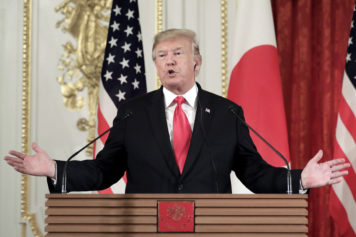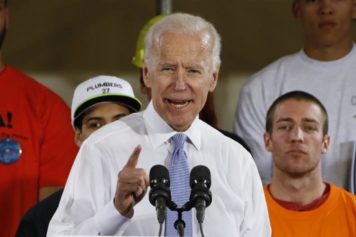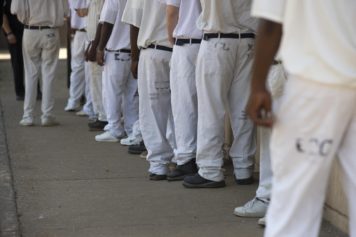For African-Americans, the fact that they are disproportionately arrested for low-level marijuana violations is less than surprising. The Black community has long been aware of ongoing disparities in American criminal justice when it comes to arrests and sentencing for the same crimes committed by whites. This awareness was, yet again, confirmed with the ACLU’s publishing of “The War on Marijuana in Black and White,” a report detailing that African-Americans are almost four times more likely than whites to be arrested for minor marijuana possession violations.
However, in an era where marijuana is far more accepted, and its wide, diverse support is spreading — 29 states and Washington, D.C., have voted to legalize either recreational or medicinal marijuana, and noted legislators like U.S. Senator Cory Booker are pushing for legalization — the racial disparity for those arrested for minor pot possession is, ironically, increasing. Recent studies from several states including New Jersey, New York and Virginia re-established that African-Americans are still far more likely than whites to be arrested on marijuana charges. “You see these marijuana arrests happening so much in our country, targeting certain communities — poor communities, minority communities — targeting people with an illness,” said Booker, introducing his bill to legalize marijuana nationwide in an August Facebook Live presentation.
“It raises deep concerns when we’re seeing that the racial disparities have actually deepened in the areas of drug possession, law enforcement and other areas,” said Hilary 0. Shelton, director to the NAACP’s Washington Bureau and senior vice president for advocacy and policy. Shelton clarified that “legalization,” from the NAACP perspective, is more effectively viewed as “regulation and oversight” given the necessary legal steps involved and its potential similar handling as alcohol and cigarettes. “With young people of all races and ethnicities, according to the Department of Health and Human Services, illegal drug use is consistent across racial and ethnic lines,” he reported, noting “the problem boils down to the practices of the criminal justice system itself.”
“If you only focus on one neighborhood all the time,” continued Shelton, “the other neighborhoods are breaking the law as well, but if no police officers are there to witness it and otherwise enforce, you won’t realize the problem.”
Others have realized the problem. “The United States government’s War on Drugs has perhaps contributed more than any other single factor to the racial disparities in the criminal justice system,” read the August 2013 Report of The Sentencing Project to the United Nations Human Rights Committee. “From 1999-2005, African American constituted roughly 13% of drug users on average but 36% of those arrested for drug offenses and 46% of those convicted for drug offenses. While the War on Drugs creates racial disparity at every phase of the criminal justice process, disparities in sentencing laws for various types of drugs and harsh mandatory minimum sentences disproportionately contribute to disparity.”
Attorney General Jeff Sessions appears intent on ensuring such disparity remains. “Good people do not smoke marijuana,” he quipped at a Senate drug hearing in April 2016. “We need grown-ups in charge in Washington to say marijuana is not the kind of thing that ought to be legalized, it ought not to be minimized, that it’s in fact a very real danger.”
By highlighting this alleged “danger,” drafting inflexible sentencing guidelines urging prosecutors to pursue harsh sentences for drug offenses and, more recently, lobbying lawmakers in the House of Representatives to refrain from preserving the Rohrabacher-Farr amendment — the law prohibiting the Justice Department from prosecuting medical marijuana users and sellers operating legally under state laws— some feel Sessions is amassing power while paving the way for a sequel to the War on Drugs. “This would give the attorney general a blank check to go after medical marijuana,” said Sarah Trumble, deputy director of social policy and politics at Third Way, a think tank pushing to relax federal restrictions on marijuana. Although the Senate has voted in support of preserving the Obama-era amendment, both houses must agree for the law to remain in effect.
The American criminal justice system has long relied on its darker citizens, regardless of innocence or guilt, to disproportionately feed its insatiable appetite for increased high levels of incarceration. From such post-slavery systems as convict leasing up through the so-called “War on Drugs” and the proliferation of private for-profit prisons, the country has operated a lucrative and discriminating prison-industrial complex aimed at maximizing both Black imprisonment and corporate revenues. As many in the country envision a day when the legal regulation of marijuana will become a reality in a majority of states across the nation, if not the nation itself, it is not hard to imagine the American criminal justice system restoring old ways to ensure a consistent supply of African-Americans to imprison.
“We are disturbed to see that, rather than a continued move forward to address the major problems and inequities in our criminal justice system, those like Jeff Sessions are actually moving us steps backward to the problems we once had,” said Shelton, noting “that doing the same thing over and over again really is the clinical definition of insanity.”


